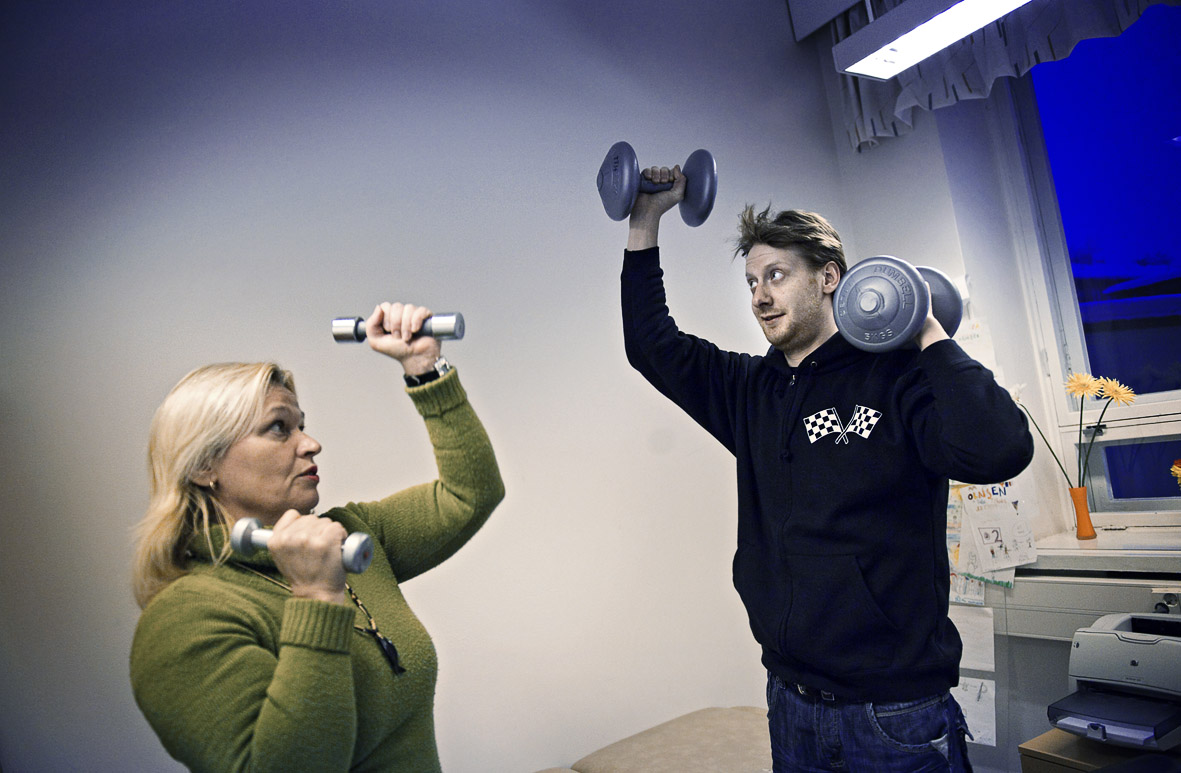“The most important thing is to keep people in work for the sake of their own well-being. It is not a relief to be awarded sickness benefit, it is a trap,” says Leena Haakana.
When people have a job to go to, it is a good thing both socially and economically. Haakana is an occupational health worker at the City of Helsinki. She is the co-author of a report detailing three years of innovative public health work. A five-person workgroup within the city’s occupational health service have worked on an activity model, using 270 people on long-term sick leave with serious problems as their research base.
Promising
The result is promising. On average the patients had been away from work for 1.5 years – some as long as seven years. More than half of them could return to work after going through the entire chain of available support – doctors, health workers, rehabilitation planners, psychologists, physiotherapists – and the rest found a new career.
The overriding idea was that everybody possesses some kind of resource and skill to be able to function in a work place. The solution has been to adapt the work to fit the individual’s capacity, in a human and reasonable way. For many people on long-term sick leave, returning to work can be a daunting prospect. Have they lost their competence? Will colleagues look at them with distrust? Will they manage? But Swedish research shows that giving support to employees considerably lowers the threshold for them to return to work.
The greatest worry is the large number of people taking early retirement because of psychological problems.
“Statistically there aren’t more depressed people now than before, but working life is now so hectic that those who are depressed manage less well.”
It used to be skeletomuscular illnesses that put people out of work.
Improved numbers
Figures from the City of Helsinki show a decline over the past few years in the number of people on long-term sick leave (between two to four weeks). Other municipalities are interested in learning which models work when it comes to preventing long-term sick leave.

Many from all over the country want to hear from Leena Haakana how the City of Helsinki has managed to cut their sick leave figures.
“There is a demand for our expertise,” says Leena Haakana.
Workplace managers have been given a more active role in recent years. They have received training in how to enter a dialogue at an early stage with employees who are starting their long-term sick leave or who are frequently absent due to illness. There is also an improved mapping of health risks among employees. The City of Helsinki stand to save considerable amounts of money by undertaking this work. People who took early retirement in 2008 cost the City €12.5m.
It is also important to try to get people to work for longer, to allow employers to prepare for the oncoming labour shortage. The average age of employees at the City of Helsinki is 46.5 year.
“The average age increases year on year. When people grow older, the risk of them falling ill and going on long-term sick leave increases too.”
Positive focus
Tiina Pohjonen is the occupational health director at the City of Helsinki. She says the project’s main objective has been to change people’s perspective. Rather than focusing on the negative – risks and problems – the main focus now is on what capability workers who are ill actually have, and what tasks they would be able to perform. The tools which have been made available allows management to take action at an earlier stage, which means the measures needed to get people back into work needn’t be so extensive.
“Managers have learnt to be leaders in workplace well-being.”
It has also become clear that in order to get people to work longer, they have to feel that their work is meaningful. If not, neither laws nor rules will help.
“I don’t believe in normative control, that you can force people to work. Work must make sense.”





